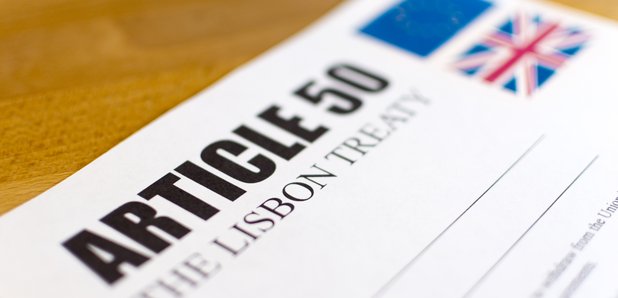
Ali Miraj 1pm - 4pm
3 October 2016, 13:44 | Updated: 26 April 2018, 15:40

Theresa May says she will invoke Article 50 by the end of March. But what is article 50 and what does that mean?
Article 50 is the section of the Lisbon Treaty that sets out a two-year process for a country to leave the European Union.
That means the government has two years to agree trade deals, border controls, which regulations it wants to keep and all other aspects currently agreed with the EU.
George Osborne told LBC that that task is not possible in two years. The Chancellor told LBC that it would take years and year and he has not made any contingency plans for what happens when Britain leaves the EU.
Indeed Professor Michael Dougan, an expert in European Union law, suggests a conservative estimate would be closer to 10 years.
Politicians are wary of invoking the article, because that sets a timeframe on those negotiations - and if deals aren't in place after two years, Britain leaves the EU with nothing in place.
Donald Tusk, President of the European Council, said in February when Mr Cameron announced his renegotiation: "If the majority vote is to leave, that is what will happen.
"It will change Europe forever and it will be a change for the worse."
But Boris Johnson and the Leave campaign have put together a more positive outlook on what happens once the UK votes to leave the EU.
He said: "As soon as you Vote Leave, the Euro treaties remain in force for at least two years. They are grandfathered on.
"You have plenty of time to renegotiate a new free trade rate."
LBC's Political Editor Theo states: "The only thing that is certain about Brexit and our relationship with the European Union is that the future is uncertain. Ultimately, we will now face a game of brinksmanship.
"Britain is the second largest economy in Europe and a deal of some sort will have to be done.
"But Donald Tusk and European Commission President Jean-Claude Juncker do fear our referendum could be contageous, that populations in other European countries will look with envy at Britain and say to themselves we want the same.
"And with that fear foremost in their minds, both men will not want any renegotiation to be easy."